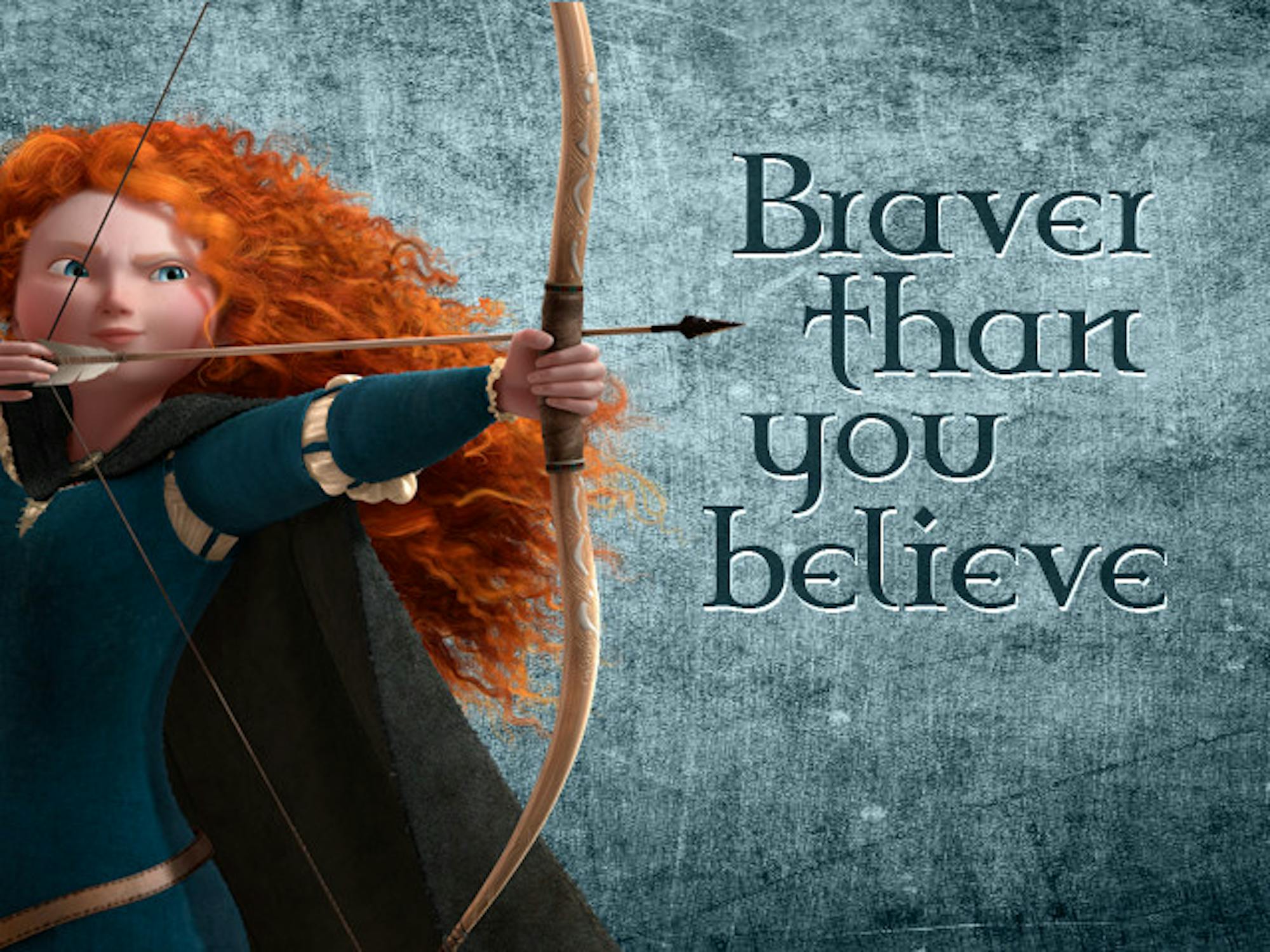
In 2012, Brenda Chapman was the one doing the giving as half of the directing team for Pixar’s 2012 summer spectacle, "Brave."
Chapman is a personal heroine of mine, considering our lives started in the same place. Born and raised in Beason, Illinois (nowhere near Chicago, go look at a map), she studied for two years at the same Central Illinois technical school that several of my friends back home attend.
She went on to study at the California Institute of the Arts. She embarked on her own (wo)manifest destiny with dreams of working in animation with the elite from Disney to Dreamworks to Pixar.
In "Brave," Chapman sends a message of responsibility and the courage one needs in order to face what cannot be changed and do what one does not want to do.
The gift Chapman and co-director Mark Andrews gave to audiences worldwide in the form of "Brave" is of visual magnificence and artistry that only the minds of Pixar could engineer through vivid lighting and beautiful animation. Experiencing its imagery just once will make you want to hop the next flight to Scotland. At the very least, you will exit the world of "Brave" having acquired something of a Scottish accent.
An example of this cinematic beauty’s trailblazing computer animation is the flaming red mane of the female protagonist parents had been waiting and begging for: Merida — excuse me — Princess Merida, as marketing executives would say.
Before my analysis of how Merida compares to other strong, independent female characters in cinema ensues, I’ll sum up her story. "Brave" begins with a prologue/back-story. We meet King Fergus, Queen Elinor and a tiny, rambunctious Merida so cute you’ll be proud to be a ginger, wish you were a ginger or want to marry a ginger so you can make ginger babies with the hope they’ll be as adorable as this cartoon.
As a birthday present, Fergus gives Merida her first bow and arrow. In case you don’t remember, "Brave" was released on the heels of "The Hunger Games," sparking a little pop-culture archery craze. Merida is clearly a better shot than Katniss as we see when the film shifts to present day, showing her hitting a couple bullseyes hanging from trees like its nothing while riding her black steed, Angus.
During the opening scene, we are briefed on the story of a rampant “demon bear” named Mor’du and how he is the cause for the king’s decades-old revenge mission (and missing left leg). Mor’du, whose name translates to “big black” from a combination of the Gaelic words “mór” and “dubh,” serves as a metaphorical mirror for Merida’s potential fate. The symbolism of bears is prominent, giving the plot a flair of folklore and magic.
Not long ago, I read Mary Pol’s article in Time Magazine, “Why Pixar’s 'Brave' is a Failure of Female Empowerment,” which makes the case that "Brave" isn’t really as brave as the title suggests. She cites how Chapman was replaced by Andrews in the director’s chair with only 18 months until the premiere, thereby shattering any realization of “female empowerment.” I won’t critique Pol’s analysis, but I will write this: "Brave" is certainly a cinematic vision that could not have been accomplished without being overseen by a woman. Chapman went on to be the first female director to win an Academy Award, albeit for Best Animated Feature, but a groundbreaking achievement for future dreamers nonetheless.
At the film’s end, Merida still has some maturing to do, but she learns from the wisdom of her mother how to use the talents she’s been given to become the best version of herself. The fact that Chapman was confident enough in her own vision to give young girls Merida, a headstrong young woman, gives me hope. We are all braver than we believe.













